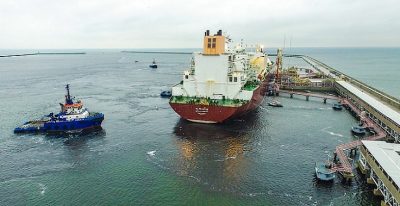Germany’s Request to Partner with the Three Seas Initiative Is a Win for Poland

Note to readers: please click the share buttons above
The EU’s de-facto leader officially acknowledged an irreversible sub-bloc integrational reality by requesting to partner with the Polish-led “Three Seas Initiative”.
Poland received an unprecedented boost to its rising international prestige after Germany requested to partner with the Warsaw-led “Three Seas Initiative” (TSI) ahead of the sub-regional integrational bloc’s upcoming summit in Bucharest from 17-18 September. The EU’s leader had been loath to recognize this irreversible geopolitical reality because it represents the greatest threat to its EuroLiberal control over the Union as a result of the TSI’s distinctive EuroRealist approach to intra-organizational relations, specifically its emphasis on national sovereignty.
Be that as it may, Berlin realized the wisdom of the age-old adage that “if you can’t beat ‘em, join ‘em” and decided to request an official partnership with the TSI in an attempt to shift its center of gravity and shape (sabotage) the group from within. Warsaw is well aware of its historic rival’s intentions but also knows that it could leverage Germany’s interest in the sub-regional integrational bloc to its ultimate advantage if it succeeds in getting Berlin to use the Polish-led structure for organizing regional investment projects outside of the EU’s existing frameworks.
There’s actually a good reason for Germany to agree to this because the TSI has basically become the US and China’s portal of economic entry into Central & Eastern Europe, as well as being a zone of informal competition between the US and Russia in the New Cold War. Turkey’s also somewhat interested in it too, so it makes sense for Germany to join in the competition, after which Poland can then market the TSI as an even more important international entity than ever before after receiving official recognition of its significance from the EU’s de-facto leader.
Taken together, Poland has everything to gain by endorsing Germany’s request to officially partner with the TSI. Not only has Berlin implicitly accepted that the Warsaw-led sub-regional integrational bloc is an active arena of “friendly” international competition between several of the world’s most influential Great Powers, but this in and of itself essentially elevated Poland’s global strategic standing as a result. Because of these reasons, it’s no longer laughable to suggest that the TSI is the modern-day and much more successful manifestation of the inter-war “Intermarium”, therefore making it among Poland’s most meaningful contributions ever to European geopolitics.
*
This article was originally published on Eurasia Future.
Andrew Korybko is an American Moscow-based political analyst specializing in the relationship between the US strategy in Afro-Eurasia, China’s One Belt One Road global vision of New Silk Road connectivity, and Hybrid Warfare. He is a frequent contributor to Global Research.

